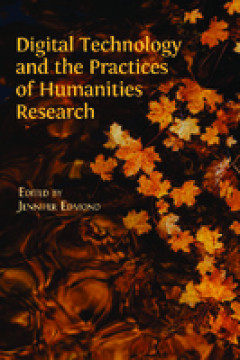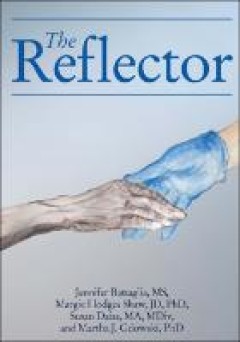Ditapis dengan
E-book Empty Spaces : Perspectives on Emptiness in Modern History
Emptiness is a challenging concept: slippery in definition and elastic in meaning. It implies a total lack of content: people, buildings, objects or markings on a map. In the abstract, emptiness equals nothingness, a perfect void. Yet when one thinks of places on the globe that one might associate with being empty – the Gobi or Sahara deserts, t…
- Edisi
- -
- ISBN/ISSN
- 9781909646520
- Deskripsi Fisik
- 230 hlm
- Judul Seri
- -
- No. Panggil
- 114 JAM e
E-book True Cost Accounting for Food : Balancing the Scale
Behind all the food that we eat is a vast realm of unaccounted for interactions:the diversion of water from rivers; the extraction of nutrients from soil; thedischarge of pollutants to air and water; the exaction of labor to grow, manage,pick, and package; the release of carbon dioxide to transport and deliver; and soon. When we shine a light on these interactions it becomes clear that a 99¢ha…
- Edisi
- -
- ISBN/ISSN
- 9781003050803
- Deskripsi Fisik
- 317 hlm
- Judul Seri
- -
- No. Panggil
- 338.1 ABO t
E-book Dying in Full Detail : Mortality and Digital Documentary
Dying in Full Detail: Mortality and Digital Documentary will consider the con-sequences of that new practicality, examining documentarians’ recent pursuits of death with equipment that promises to capture its “full detail.” In The Note-books of Malte Laurids Brigge (1910), Rainer Maria Rilke composes the phrase I have appropriated for my title. In context, its meaning refers to a style of…
- Edisi
- -
- ISBN/ISSN
- 9780822373414
- Deskripsi Fisik
- 269 hlm
- Judul Seri
- -
- No. Panggil
- 070.18 MAL d

E-book Digital Technology and the Practices of Humanities Research
"How does technology impact research practices in the humanities? How does digitisation shape scholarly identity? How do we negotiate trust in the digital realm? What is scholarship, what forms can it take, and how does it acquire authority? This diverse set of essays demonstrate the importance of asking such questions, bringing together established and emerging scholars from a variety of disci…
- Edisi
- -
- ISBN/ISSN
- 9781783748433
- Deskripsi Fisik
- 297 halaman
- Judul Seri
- -
- No. Panggil
- 001.3 EDM d
E-book The American Short Story Cycle
owever, in their eagerness to have these volumes read and stud-ied, Dunn and Morris miss how formative the short story is to such books, so much so that Rolf Lundén argues for short story com-posite. His study rightly attends to the tensions between unity and fragmentation that distinguish the genre, and he argues that not every such volume features cyclicality …
- Edisi
- -
- ISBN/ISSN
- 9781474423946
- Deskripsi Fisik
- 201 hlm
- Judul Seri
- -
- No. Panggil
- 897 SMI t
E-book Moving Histories : Irish Women’s Emigration to Britain from Independ…
This book looks at the impact women’s migration had on Ireland in the crucial years of initial independence, from the partition of the island and the founding of the Free state to the declaration of a Republic. This period saw Ireland move from internal political instability in the 1920s to a more internationally focused country in the 1950s. However, emi…
- Edisi
- -
- ISBN/ISSN
- 9781786949608
- Deskripsi Fisik
- 296 hlm
- Judul Seri
- -
- No. Panggil
- 941 RED m

E-Book The Reflector
Incorporates etymology, history, art, drawing, and reflective writing to support medical students in the integration of the science and humanity of anatomy. A comprehensive and holistic understanding of human anatomy is foundational to the care of patients. The Reflector is an innovative and interdisciplinary approach to the learning of human anatomy; it incorporates etymology, history, art, dr…
- Edisi
- -
- ISBN/ISSN
- 9781800102224
- Deskripsi Fisik
- 198 halaman
- Judul Seri
- -
- No. Panggil
- 611 BAT t
E-book Georgette Heyer : History and Historical Fiction
In June 2018, in preparation for writing this chapter, I undertook two distinct searches. The first was of Oxford college and faculty libraries (around 40 in all), using the search tool SOLO (Search Oxford Libraries Online). The second, of local charity shops around Oxford, I undertook on foot. In both I was looking for copies of historical novels by British women writers of the mid-…
- Edisi
- -
- ISBN/ISSN
- 9781787357600
- Deskripsi Fisik
- 320 hlm
- Judul Seri
- -
- No. Panggil
- 807 CLE g
E-book Piracy in World History
Pirates, it is frequently claimed, have existed since the dawn of history, as long as there has been traff ic and commerce at sea.1 Presumably, the origins of piracy would thus be sometime in the pre-historic past, when people f irst took to the sea for commercial purposes, probably around eight thousand years ago, along the coast of the Persian Gulf.2 Historical records over close to three and…
- Edisi
- -
- ISBN/ISSN
- 9789048544950
- Deskripsi Fisik
- 292 hlm
- Judul Seri
- -
- No. Panggil
- 364.163 AMI p

Taste berries for teens : Kisah-kisah remaja tentang hidup, cinta, persahabat…
- Edisi
- cet. 2
- ISBN/ISSN
- 979-686-347-2
- Deskripsi Fisik
- 516 hlm;;13.5 x 20 cm
- Judul Seri
- -
- No. Panggil
- 128 YOU t
- Edisi
- cet. 2
- ISBN/ISSN
- 979-686-347-2
- Deskripsi Fisik
- 516 hlm;;13.5 x 20 cm
- Judul Seri
- -
- No. Panggil
- 128 YOU t

Chicken soup for the single's soul : Kisah-kisah cinta yang memberi semangat …
- Edisi
- cet. 2
- ISBN/ISSN
- 979-686-346-4
- Deskripsi Fisik
- xxiii; 479 hlm;13.5 x 20 cm
- Judul Seri
- -
- No. Panggil
- 152.4 CAN c
- Edisi
- cet. 2
- ISBN/ISSN
- 979-686-346-4
- Deskripsi Fisik
- xxiii; 479 hlm;13.5 x 20 cm
- Judul Seri
- -
- No. Panggil
- 152.4 CAN c

Chicken soup for the woman's soul : Musim semi di paris dan kisah-kisah nyata…
- Edisi
- cet. 1
- ISBN/ISSN
- 978-979-22-2611
- Deskripsi Fisik
- vi; 207 hlm;15 x 23 cm
- Judul Seri
- -
- No. Panggil
- 155.2 CAN c
- Edisi
- cet. 1
- ISBN/ISSN
- 978-979-22-2611
- Deskripsi Fisik
- vi; 207 hlm;15 x 23 cm
- Judul Seri
- -
- No. Panggil
- 155.2 CAN c

Twenty steps to wisdom : Melintasi batas keduniawian, mencapai keseimbangan jiwa
- Edisi
- -
- ISBN/ISSN
- -
- Deskripsi Fisik
- 135 hlm;;11 x 18 cm
- Judul Seri
- -
- No. Panggil
- 128 JAM m
- Edisi
- -
- ISBN/ISSN
- -
- Deskripsi Fisik
- 135 hlm;;11 x 18 cm
- Judul Seri
- -
- No. Panggil
- 128 JAM m

SEGI PRAKTIS FISIOTERAPI
- Edisi
- ed.2 cet. 1
- ISBN/ISSN
- -
- Deskripsi Fisik
- 326 hlm;21 x 13,5 cm
- Judul Seri
- -
- No. Panggil
- 613.2 LEE s
- Edisi
- ed.2 cet. 1
- ISBN/ISSN
- -
- Deskripsi Fisik
- 326 hlm;21 x 13,5 cm
- Judul Seri
- -
- No. Panggil
- 613.2 LEE s
 Karya Umum
Karya Umum  Filsafat
Filsafat  Agama
Agama  Ilmu-ilmu Sosial
Ilmu-ilmu Sosial  Bahasa
Bahasa  Ilmu-ilmu Murni
Ilmu-ilmu Murni  Ilmu-ilmu Terapan
Ilmu-ilmu Terapan  Kesenian, Hiburan, dan Olahraga
Kesenian, Hiburan, dan Olahraga  Kesusastraan
Kesusastraan  Geografi dan Sejarah
Geografi dan Sejarah